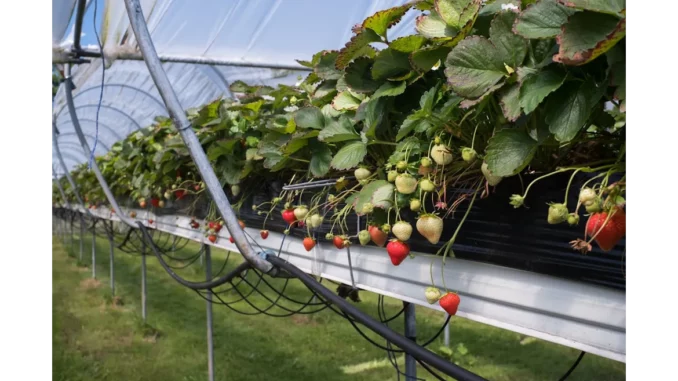
Summary
Premier Polytunnels Warehouse Expansion: A Catalyst for Economic and Environmental Transformation
Premier Polytunnels has received approval for a new storage warehouse at the Albert Mill site in Barrowford, underscoring significant trends in industrial and urban planning. As the company expands its capacity, broader implications arise concerning regulatory compliance, sustainable development, and the economic impact of warehousing.
Main Article
Strategic Expansion for Premier Polytunnels
Premier Polytunnels, a leading manufacturer of greenhouse-like structures, is set to expand its operations with the construction of a new warehouse. The structure, covering 153 square metres within a 378-square-metre vacant industrial plot, is designed with a steel portal frame reaching a height of 7.24 metres. This design reflects an industry trend towards optimising vertical space to boost storage efficiency while minimising the building’s physical footprint.
The location within an existing industrial complex ensures seamless integration into Premier Polytunnels’ current logistics framework. The site’s access via Factory Lane facilitates efficient operations without disrupting existing processes, a critical factor for maintaining supply chain efficacy.
Regulatory Compliance and Community Engagement
The approval process, managed by Pendle Council, underscores the importance of adhering to regulatory demands and engaging with the community. Key conditions, such as the implementation of surface water drainage systems and the adherence to material usage guidelines, highlight the growing emphasis on sustainable development. “Our aim is to ensure that industrial growth aligns with environmental priorities,” stated Councillor Richard Green of Pendle Council, reflecting a broader trend towards eco-friendly industrial practices.
These conditions ensure that the warehouse’s construction aligns with local and national environmental goals, promoting sustainable industrial expansion and reinforcing community trust.
The Role of Warehousing in Modern Economies
Warehouses have transitioned from simple storage facilities to critical nodes in the global supply chain, driven by the rise of e-commerce and international trade. Modern warehouses are increasingly incorporating technology such as automation, smart inventory systems, and data analytics to enhance productivity and reduce costs. This shift transforms warehouses into high-tech hubs, facilitating the efficient movement of goods from manufacturers to consumers.
The Premier Polytunnels project is emblematic of this evolution, as it seeks to leverage technological advancements to meet rising consumer demands effectively. As a result, the new warehouse is expected to significantly boost the firm’s operational capacity and market competitiveness.
Community and Environmental Considerations
Constructing new warehouses involves navigating complex challenges, including potential impacts on local communities and ecosystems. Addressing concerns related to noise, traffic, and environmental impact is essential for successful integration into urban and suburban landscapes. Engaging with local stakeholders and adhering to zoning regulations are crucial steps in balancing industrial needs with community well-being.
As highlighted by environmental consultant Sarah Thompson, “The success of such projects hinges on our ability to harmonise industrial objectives with environmental stewardship and community interests.”
Detailed Analysis
The development of Premier Polytunnels’ warehouse is a microcosm of current trends in industrial growth and urban planning. As industries evolve, the supporting infrastructure must adapt to new demands and challenges. The emphasis on sustainability is a critical component of this transformation, aligning with broader environmental goals and societal expectations.
Warehousing’s increasing role in the global economy cannot be overstated. Efficient warehousing solutions are vital for maintaining supply chain resilience, especially amid the growing influence of e-commerce. The integration of technology in warehousing operations represents a significant shift towards more streamlined and cost-effective processes.
Moreover, the economic benefits of warehouse development extend beyond individual businesses. Projects like Premier Polytunnels’ expansion can stimulate local economies by creating construction jobs and supporting surrounding businesses. This ripple effect enhances the economic landscape, contributing to broader regional development.
Further Development
As Premier Polytunnels moves forward with its warehouse development, continued attention will be given to its integration with existing operations and its impact on the local community. Future reports will delve into the project’s progress, examining how it aligns with evolving economic and environmental trends.
Stakeholders are invited to stay informed through ongoing coverage, which will explore the implications of this development for industrial practices and community engagement. Readers are encouraged to follow subsequent updates, as this case study provides valuable insights into the dynamic interplay between business expansion and sustainable growth.

